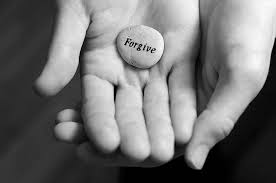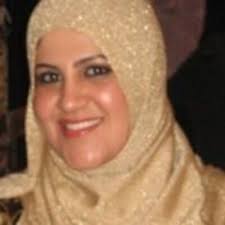Forgiving Your Parents & Learning to Move On

“Children begin by loving their parents; as they grow older they judge them;
sometimes, they forgive them” – Oscar Wilde
Guest Post by Hosai Mojaddidi
The notion that adults, and in particular, parents and caregivers, are to be unequivocally trusted is something that most young children naively believe, unless or until that trust is broken. Typically, this involves some form of neglect or act of abuse, be it verbal, emotional, or physical or a combination of all three. Examples of such abuse may include humiliating a child in public, repeatedly ridiculing them or calling them cruel names, withholding love and affection from them, violent unprovoked outbursts, slapping, punching, etc. When a child is deliberately hurt by a parent, whether it’s ongoing abuse or an isolated traumatic incident, it can be especially difficult to overcome for the child, even years after the abuse is over. How can one determine if they have truly moved on from their traumatic past? Is “forgiving” your parents enough?
The Cycle of Abuse
Most people hold true that the purest form of love is between a parent and child and that somehow by simply becoming a parent one learns to love “unconditionally.” So naturally we expect that parents instinctively should love their children and treat them accordingly. The unfortunate truth is that many parents are not only abusive but are very capable of doing great harm to their children. In fact, a simple survey of the headline news on any given day will yield countless examples of seemingly “normal” parents who hurt, abandon, and in the most tragic cases even murder their own children.
More than 8 out of 10 abused children are abused by their own parents.
Every 6 hours in America a child dies in the US due to abuse or neglect.
In 2005, more than 3.5 million children were reported as victims of child abuse or neglect.
So while a person may know and understand on a rational level that their parents are human and flawed and capable of making mistakes, it can still be very difficult to disconnect from the negative memories and move past the feelings of betrayal. Such a person may grapple regularly with anger, resentment, passive-aggressiveness, hostility, apathy, or even hatred towards their abusive parent(s).
At any given point, one can feel the full spectrum of these emotions or they may have learned to suppress their emotions and feel nothing at all. This is partly because of the destructive effect the abuse has on a child’s emotional development and self-esteem, which can carry well into adulthood if unresolved:
“Children of abuse do not develop healthy self-esteem. They often blame themselves for the arguments and the violence. They may also believe that it is their own failing that they receive little love. Violence also creates low self-worth: For example, if a parent does not realize what happens to the child who witnesses or receives the abuse, the child may believe that, “My feeling (of fear or pain) are ignored, and my needs (for peace and comforting) are not being met…I must not be important. Fighting parents cannot attend to the child’s emotional needs. Often, the ups and downs of abusive homes are ignored: the child feels anxiety and agitation as the tension builds up; the child feels fear and helplessness during the battering; and then the child feels guilt and shame afterward. Without intervention, these feelings are never resolved.” – “Understanding Domestic Violence,” by Barbara Correy, M.A
Some people carry on for years not realizing that they are still plagued with feelings of inadequacy, self-blame, and low self-esteem because of the abuse they experienced as a child. These feelings may manifest themselves in different ways, for example, how you perform in school or at work, how you allow your partners to speak to you or treat you, or how you feel about your own abilities and accomplishments.
So even if you never confronted your parents or sought some type of treatment, you may falsely think you are “past” the abuse because of how long ago it occurred or because you deliberately suppress your memories, but the residual effects of it are actually with you every day.
If one or more of your parents abused you as a child and you are now an adult, consider the following to know if you are truly over the abuse:
1) Do you feel any anxiety talking/interacting with your abusive parent(s)?
2) Do you try hard to impress them by sharing your accomplishments and goals?
3) Do you take their criticisms to heart more than you do other people in your life?
4) Do you constantly feel like nothing you ever do is good enough for them?
5) Do you feel a greater sense of value when they show you affection or approval?
Forgiving & Moving Forward
In Islam, we are constantly reminded throughout the Qur’an and in the hadith literature, that it is better to forgive those who wrong you than to have rancor towards them or cut them off. This is even more the case for parents, where children are told to be humble towards them and never even utter a single word of frustration to them:
“Pardon them and overlook – Allah loves those who do good.” (Qur’an 5:13)
“Those who control their anger and are forgiving towards people; Allah loves the good.” (Qur’an, 3: 134)
“Your Lord hath decreed that you worship none but Him, and that you be kind to parents. Whether one or both of them attain old age in your life, say not to them a word of contempt, nor repel them, but address them in terms of honour. And, out of kindness, lower to them the wing of humility, and say: My Lord! Bestow on them Your Mercy even as they cherished me in childhood.” (Qur’an 17:23)
To “forgive” one’s parents is therefore something anyone can do if they feel compelled enough to try; it can be as simple as telling them you forgive them or supplicating to God and asking for their pardon. The more difficult process is learning how to move forward from the abuse and become whole again. This isn’t as much about your relationship with your parents as it is about you. It’s about learning how to break away from the effects that the abuse had on your own self-image. This requires a deep level of introspection and a certain degree of faith and spiritual practice.
And it’s important to note, that depending on your past experience with abuse, simply praying and offering forgiveness may not be sufficient. Yes, it’s important to put our faith in God and supplicate for relief from our tribulations, but we must also remember that He’s given us tools, such as science and medicine to learn and benefit from as well. Additionally, every person copes with trauma differently, so there isn’t a single approach to the healing process. Victims who’ve suffered through severe violence or sexual abuse, for example, typically need to do much more longterm work with the help of a mental health professional to overcome their trauma. Even so they may or may not ever reach the point of forgiving their parents; that decision is solely theirs.
Violent/Sexual Abuse Cases
In the Muslim community, oftentimes because of family pressure or culture, many victims of sexual abuse or domestic violence never report the abuse or if they do share it with someone they are pressured to keep it to themselves and “get over” what happened to them. A parent, sibling, friend or even the imam at a masjid may not know how to properly console the victim and defers to telling them to “forgive and forget,” or “let it go for the sake of Allah.” In this way, the victim may experience a form of revictimization, where they are once again silenced and their trauma dismissed and forgotten. Victims of severe abuse cases such as these need to be given a voice no matter how long ago the abuse occurred; they need to feel empowered and reassured that they have nothing to be ashamed of and they are not at fault. It is best to seek the help of a mental health professional who has experience helping victims of domestic violence and abuse. Others, even if they have the best of intentions and want to help, may end up causing more harm than benefit. For more information online visit the National Center for Victims of Crime.
 Hosai Mojaddidi is the co-founder and past editor of MH4M. She has been actively involved with the Muslim community in the San Francisco Bay Area and the southern California community for nearly 15 years. Additionally, Sr. Hosai is a published author and lecturer.
Hosai Mojaddidi is the co-founder and past editor of MH4M. She has been actively involved with the Muslim community in the San Francisco Bay Area and the southern California community for nearly 15 years. Additionally, Sr. Hosai is a published author and lecturer.


Helpful. Would like to see more like this.
[…] https://mentalhealth4muslims.com/forgiving-your-parents-learning-to-move-on/ […]
This is something I’m dealing with.. I am a revert , and I was abused as a child. I know we are supposed to deal with are our parents with mercy and love ..and even be available to care for them. I’m struggling with this, I’m wondering if I am sinful for not being able to be in my parents life any longer because it’s simply not safe or healthy.
Disregard the image next to my comment..I dont know how to change it and this is an old email account .
Saima – A child is trust to a Parent from Allah (GOD) As the saying goes “you reap what you sow ” , your parent has made his choice that is to abuse you , he listened to the devil , this condition to love your parents applies only when they have raised you with love, effection and responsibly , so you have a choice now to hold them accountable for what they have done to you and remove them from your life or Forgive them if you can and move on, act normal as nothing happened. Islam gives you choice. Islam doesnt want any one to be supressed what so ever either by the truama of thier abusive parents or anyone else . Hope it clarifies
Me and my mum have an abusive relationship because I chose my own spouse and got married. Its been 7 years since my marriage. I have my own child. Allhumdulliah I’m happy in my marriage but my mother is causing me sever depression. She feels abandoned because she fees I left her and got married. She curses all the times and even wished I was dead instead of getting married. Recently, she said “I wish he dies ( my husband ) and your left all alone.
Because, of the status of mothers in Islam and also the hadith about not cutting kin ship I don’t want to cut my mother off. However, I feel like it’s doing more harm than good. I wish there was more guidance on this matter. I feel caught up in a storm. I’m not happy without her. Yet if I talk to her it’s normally worse. Fears are around Allah accepting Ur good deeds, ibaada and even getting into jannah.
There is a really good book that can help you understand your mother better. It’s called “Will I ever be good enough” by Dr. Karyl McBride. What you’re mother is doing is wrong and not acceptable. She’s struggling with her own emotions. Obviously you can’t disown her and cut ties with her but you can set firm and health boundaries regarding your marriage as well as your relationship with her. You don’t have to be mean or abusive towards her in anyway but you can set boundaries and end the conversations when they become toxic and mean. You need to teach and train her how to talk to you in a way that’s healthy and productive and encourage her to seek help for the loss she’s feeling.
I try my best to keep my mom happy but as a student I’m a super busy individual myself. I try to do chores and help my mum so she doesn’t complain but it’s never good enough. I literally feel worthless and like I’m never good enough for anyone. It kills like anything. I’m trying to balance school and home life to the best of my ability but my mother doesn’t seem to see or appreciate my efforts. Even if I’m in physical pain I got up and did housework just so she was happy. I still received negative comments which practically pierced my heart. It’s becoming so hard for me to cope with this.
You should know that your mother’s negative comments and lack of appreciation can say more about her and her outlook on life than you or your worth. You should check out the book “Will I Ever Be Good Enough” by Dr. Karyl McBride. You’ll see many others in the same situation as you.
I need help. Is there someone I can reach out to for mental health issues?
I’m sick of parents being nasty BECAUSE they love me, not because I don’t think they don’t. Respect has to be mutual it doesn’t matter who the argument is between I’ve had enough of them telling me off and nagging at me and getting harsh and mad at me and say it’s for my own good no matter how much it upsets me like my feelings don’t matter just cuz I’m the child and inferior to them. It isn’t fair for the situation to be regardless with them mum carrying me giving birth to me and both raising me doesn’t make them any less human so they can still be bad to us like any other. The Qur’an also says “even amongst your spouse’s and offsprings you may have enemies, beware of them, but if you overlook there offences and forgive them God is most forgiving most merciful.” I so hate my parents to bits it depends on how they treat me not who they are and just cuz I forgive them doesn’t mean I love them I’m never becoming a parent myself doesn’t even say in the Qur’an its wrong to hate.